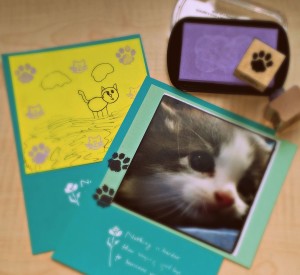If you have ever lost a human family member, you know that funeral services, public announcements, obituaries, visitations or wakes, and many sympathy cards usually follow the death. Often, there is a period of mourning that is acknowledged, respected and supported by those around us, and if we feel that we need extra support, there are places to turn.
Unfortunately, these social norms and rituals often do not exist after we lose a pet. Pet loss is a type of disenfranchised grief, which means that our sadness and distress is typically not acknowledged by society to the same extent as other losses. Sometimes we feel abnormal or ashamed for feeling so heartbroken after losing our pet, and we often feel that we can’t talk about it to most people. These feelings are completely normal and very common, and they speak to the disenfranchised nature of pet loss – not to an inability to cope or an overreaction to a loss. Unfortunately, because pet loss is so disenfranchised, we often don’t fully grieve the loss of our beloved pet. A lack of support and acknowledgment can prevent us from talking about our grief, memorializing our pet and processing the loss.
Because there are so few social expectations for memorializing animal friends, it’s helpful to find your own way to honor your pet. Talking about your loss, creating memorial objects, holding a ceremony or creating a ritual can be helpful parts of the grieving process. Acknowledging the loss in these ways may spur feelings of hope or restoration, or help you begin to find a “new normal.”
In addition, finding a safe space to openly acknowledge your grief can often help you process it. In order to lessen the effects of social stigma, many people find it helpful to find a community in which others share similar experiences of grieving the loss of a pet.


4 Responses to Healing Through Remembering